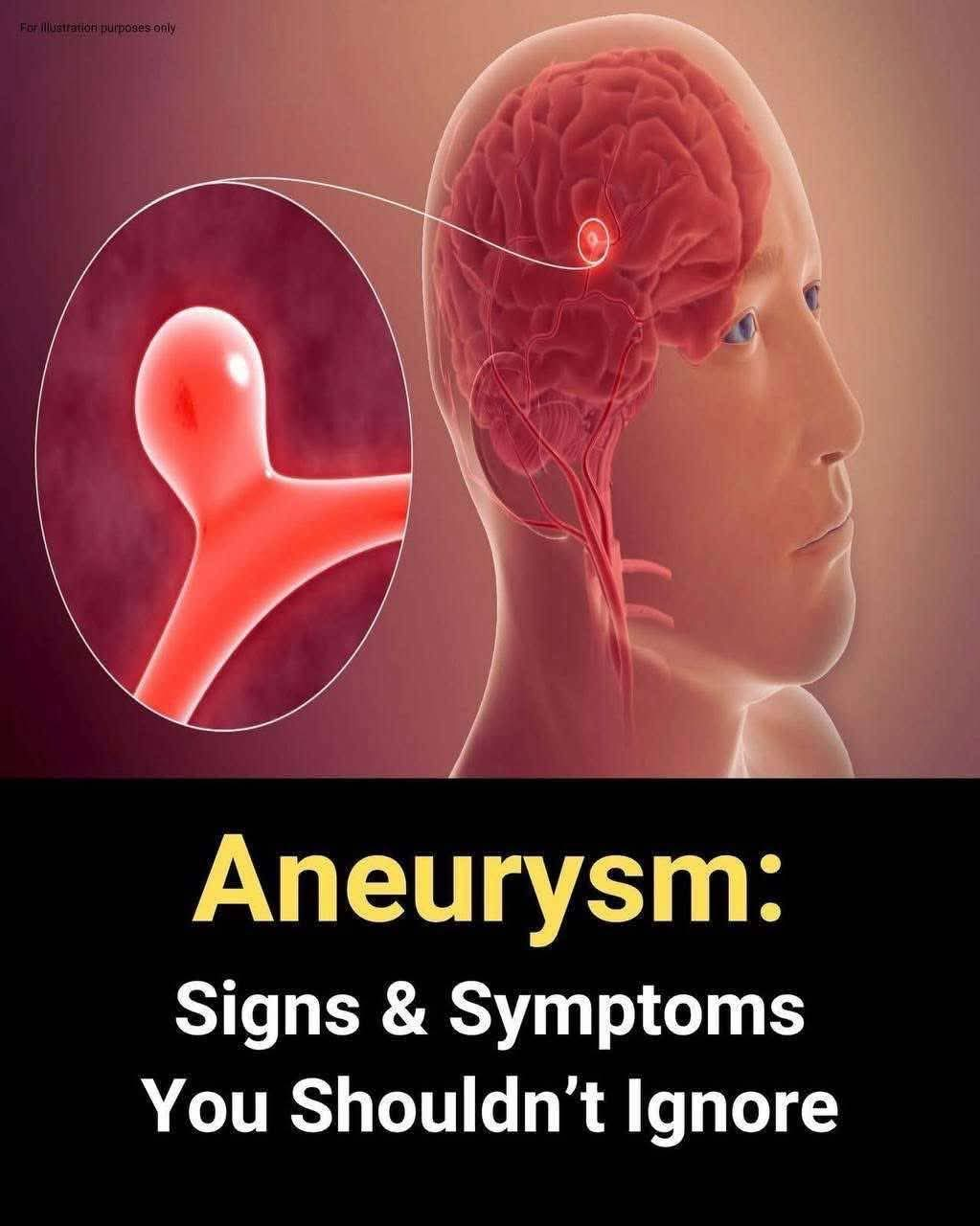Aneurysm Warning Signs You Should Never Ignore – It Could Save Your Life!

Most people don’t know they have an aneurysm until it’s too late. This silent killer can grow without symptoms and suddenly rupture — leading to stroke, internal bleeding, or even death. But your body does give warnings. You just have to pay attention.
What Is an Aneurysm?
An aneurysm is a bulge or ballooning in the wall of a blood vessel, often in the brain, aorta, or abdomen. When it bursts, it can cause life-threatening internal bleeding or a stroke.
Common Warning Signs of a Brain Aneurysm:
- Sudden, severe headache (like a “thunderclap”)
- Blurred or double vision
- Pain above or around the eyes
- Weakness or numbness on one side of the face
- Dilated pupils
- Difficulty speaking or slurred speech
- Seizures
- Loss of consciousness
These symptoms may appear suddenly and feel different from a typical headache or migraine.
Signs of an Aortic Aneurysm:
- Deep, constant pain in your chest, back, or abdomen
- Shortness of breath
- Coughing or hoarseness
- Pulsating sensation near the navel (abdominal aneurysm)
- Sudden, intense chest or back pain may signal a rupture — call emergency services immediately.
Who Is Most at Risk?
- People over 40
- Smokers
- Those with high blood pressure
- People with family history of aneurysms
- Patients with atherosclerosis (narrowing arteries)
How Can You Prevent It?
- Control blood pressure and cholesterol
- Quit smoking
- Eat a healthy diet
- Exercise regularly
- Get screened if you have risk factors or family history
Important Tip: If you experience a sudden headache described as “the worst headache of your life”, seek emergency care. It could be a sign of a ruptured aneurysm.
FAQs
Q: Can an aneurysm go away on its own?
A: Small aneurysms may be monitored, but they rarely shrink. Surgery may be needed if it grows or shows symptoms.
Q: Are aneurysms always fatal?
A: No, if detected early, they can often be treated before rupture. Survival depends on quick action.
Q: Can stress cause an aneurysm?
A: While stress itself doesn’t cause it, high blood pressure linked to stress may increase rupture risk.






